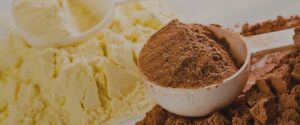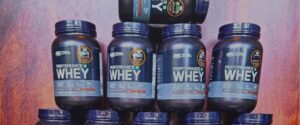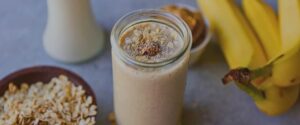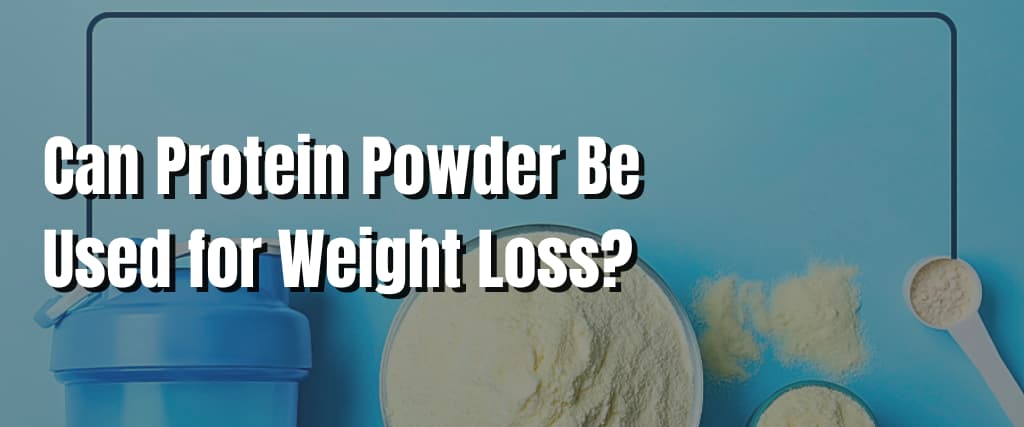You’re not alone if your clothing seems snug at this time of year. Over the Christmas and New Year holidays, many individuals eased their dietary and alcohol restrictions, and some exercises may have also been abandoned. However, celebrating the New Year with a few drinks or spending time at the table with family and friends is something to do, not to feel bad about.
Especially when getting your diet (and your waistline) back on track doesn’t require much.
Or you’re making 2020 the year you start a conscientious eating plan and increase your workout routine; if that describes you, congrats! You will look, feel, and be happier with every exercise you do and every better food decision you make.
Yes, protein powder may aid in weight reduction, regardless of your objectives. Protein powder is one of the key components of a balanced diet that may help you reduce weight while retaining lean muscle mass. It would be best if you had this to maintain your health and prevent chronic diseases in addition to looking and feeling terrific.
What Is Protein Powder?

One or more kinds of proteins are used to make protein powder. The protein is extracted from the dietary source and converted into a concentrated, dried, powdered form.
I’ll give you more background information if you’re new to protein powder. Plant-based protein sources include peas, quinoa, and hemp, while animal sources include whey (a byproduct of dairy) and eggs.
Therefore, there are egg protein, casein protein, whey protein, pea protein, and soy protein, variants of protein powders available on the market.
No matter your dietary choices (meat lover, vegetarian, or vegan), there is a protein out there that will work for you. Protein powder is great since it curbs appetite and is filling.
There are three standard varieties of protein powder:
When protein is taken from entire meals, protein concentrate is produced.
Protein isolate goes through further filtration to eliminate fat and carbohydrates, which concentrates the protein.
Protein hydrolysate is created by breaking the connections between amino acids, and the body absorbs them.
Eating Your Way to Weight Loss

Whatever their objectives, everyone should eat a balanced diet with plenty of whole foods, fruits, and vegetables and exercise regularly. The majority of individuals will benefit from this general advice.
Of course, you should always get medical advice from a qualified individual before starting any diet or exercise program. According to the Australian Government’s Health Direct, adopting a higher-protein diet to lose weight is often safe.
A balanced strategy is essential if weight reduction is your objective. You’ve heard the cliches “it’s a marathon, not a sprint” and “you can’t out-train a bad diet”, but they’re true: lasting, healthy weight reduction requires time and making the correct decisions repeatedly.
You can’t make up for bad food choices by exercising. For healthy weight reduction, there must be a balance between exercise and a nutritious diet.
But before we get into the technicalities, let’s look at how protein fits into your diet and how protein powder may help you reach your weight reduction objectives.
How Does Protein Work?

Let’s quickly review macronutrients (you may skip this section if you are already familiar with them).
Protein, carbs, and lipids are humans’ three nutritional-building elements to survive. They provide our bodies with energy and help our cells expand. It’s crucial to strike the correct balance.
Healthline summarises the macro detail as follows:
The body converts carbohydrates, which are often made of sugars, starches, or fibre, into glucose for use as fuel.
Oils, butter, nuts, meat, and fatty fish are all sources of fats, which are not only an energy source but also necessary for hormone production, nutrition absorption, and body temperature regulation.
Proteins, which may be found in dairy products, eggs, fish, lentils and other legumes, lean meat, and other foods, help develop and maintain cells and the immune system.
You can do a macros calculator on the Eat for Health website, which the Australian government runs.
When it comes to losing weight, today’s macro concentration is on protein.
The Australian Academy of Science found that people who wanted to lose weight did better following a diet with higher protein and lower carbs.
Researchers also note that those who couldn’t meet their protein requirements via their normal diets tended to eat more generally. A protein powder may help you meet your protein needs without increasing your calorie intake.
How Does Protein Help With Weight Loss?

Knowing biology may help with your mentality and enable you to adhere to your macros or, at the very least, make smarter food decisions; let’s look at the science underlying protein and weight loss.
Research on protein’s impact on weight reduction has been ongoing for years. Numerous peer-reviewed research has shown that protein is essential for individuals to lose weight. It’s about losing weight in general. Protein maintains lean muscle while assisting fat loss.
A 2008 research published in Nutrition & Metabolism, referenced hundreds of times, discovered that whey protein powder helped obese persons lose fat while maintaining lean muscle.
It was discovered that the whey protein powder group lost a substantial amount of weight and considerably more body fat than the control group. Whey protein powder contains the amino acid leucine, milk calcium, and bioactive peptides. Additionally, the group using the whey protein supplement lost much less lean muscle mass.
A 2003 research published in the Journal of Nutrition showed a higher protein, lower carbohydrate diet to be more beneficial for female fat reduction. Remember that lean muscle was kept in this research even if fat rather than total weight was decreased.
A 1999 research published in the International Journal of Obesity indicated that high protein diets were preferable to high carbohydrate diets for considerable fat reduction on fat-reduced diets.
Why Does This Matter?

According to an article published in the American Journal of Clinical Nutrition by RR Wolfe, it is essential to maintain a high level of lean muscle mass to reap the obvious advantages, which include enhanced overall body strength, increased bone strength, and an increased basal metabolic rate.
But it also has advantages that may not be immediately visible, such as the capacity of the digestive tract to absorb amino acids and the avoidance of chronic diseases.
How Does Protein Powder Help You Reduce Body Fat?

Now that we have a better grasp of the function that macronutrients play in general health and protein’s role in weight reduction, it is obvious that we should be acquiring our nutrients from whole foods that have not been processed whenever it is feasible to do so.
On the other hand, protein powder plays a vital function in the following situations:
If your macros reveal that you’re not getting enough protein, changing that is simple.
Serve as a quick and straightforward replacement for full foods when protein is needed.
Facilitate the selection of a more healthful alternative, such as a protein shake or smoothie, in place of a sugary, processed snack when a sweet tooth strikes.
Include a protein-rich element in your meal; for example, a healthy protein-packed ice cream alternative combines a serving of protein powder with a frozen banana and a splash of water.
It’s essential to get protein from a variety of sources. For example, if you’ve been eating a lot of dairy, try a plant-based protein powder like Pea, Soy, Rice, or Earth Protein from Bulk Nutrients. You can get your hands on all of them on the Plant Protein in Bulk page.
Which Protein Powder to Use for Weight Loss?

Most research on whey protein has focused on its effectiveness as a weight reduction aid. Based on cutting-edge technology, we at Bulk Nutrients created Thermowhey, the best whey protein powder for weight reduction.
Micellar Casein is combined with the purest Whey Protein Isolate (WPI) for maximum bioavailability. This allows us to maximise our protein intake while minimising our carbohydrate and fat intake. Micellar casein bypasses the stomach entirely and is slowly and efficiently absorbed in the intestines. Satiety is improved as a result of this as well.
WPI and MPI, when combined, are referred to as fat-burning proteins because of their ability to assist you in maintaining muscle mass while cutting calories and fat. Proteins that aid in fat burning may be useful for dieters since they reduce the risk of muscle loss due to catabolism.
Fat-burning proteins blend rapidly and slowly digestible to provide rapid satiety and sustained fullness.
Thermowhey also has weight-loss-promoting substances like:
Learn more about glucomannan fibre, derived from the root of the Konjac herb and maintains the health of your gut by preventing constipation and lowering cholesterol.
Body fat may be reduced with forskolin; learn more about forskolin.
Learn more about Sesamin, an anti-inflammatory and antioxidant substance that may help burn fat.
Weight reduction may be aided by alpha lipoic acid (ALA); learn more.
Green tea extract, which may speed up your metabolism and help you break down fat,
Inflammation may contribute to the body retaining fat. Olive leaf extract, which can aid with inflammation, may be beneficial.
You may increase your metabolism and reduce hunger by using cayenne pepper extract.
Caffeine, which helps speed your metabolism and help your body release stored fat,
Thermowhey is available in various flavours to keep your taste buds intrigued and encourage you to choose a protein shake over a high-calorie dessert.
Instead of eating a few pieces of rocky road, why not just have a Rocky Road Thermowhey shake?
The Thermowhey Sample Pack includes 30g sachets of all seven flavours, perfect for trying before committing to a purchase or taking on the go.
You may also try a free sample of Thermowhey or any other products that Bulk Nutrients offers.
Thermowhey’s many delicious flavours will satisfy your sweet tooth while encouraging you to choose a healthy protein shake over a high-calorie treat.
What Are The Benefits Of Protein Powder?

One of the components of bone, muscle, and skin is protein. The body must make molecules like enzymes and hormones.
The following are some putative health advantages of protein powders:
1. Weight Management
Useful protein powder comes in a variety of forms.
People may feel satiated for longer by consuming protein-rich meals and taking supplements. Smaller portions and fewer snacking sessions are often brought on by feeling full, which may assist someone in maintaining a healthy weight or, if required, shedding some pounds.
Whey protein supplements may help overweight or obese adults lose body weight and total fat mass, according to a 2017 study.
Additionally, it could lower total cholesterol, blood pressure, and other cardiovascular disease risk factors.
2. Muscle Growth
Protein is necessary for the development of muscles. Athletes and gym goers often consume protein shakes since they are thought to aid with post-strength training bodybuilding.
A 2018 review of 49 trials supports using protein supplements for this purpose. In healthy people who engage in resistance exercise training, such as lifting weights, evidence shows that protein supplements dramatically increase muscle growth and strength.
Men and women both benefited from taking more protein. However, the efficacy may diminish with age due to older persons’ increased protein needs compared to younger ones.
According to the study, the subjects only continued to benefit from protein intake once it surpassed 1.6 grams (g) per kilogram (kg) of body weight.
3. Recovery After Exercise

Protein not only helps contribute to the creation of muscle, but it may also assist in the healing of injured muscles and tissues. Consequently, athletes may consume protein powder to hasten their recovery from the discomfort caused by exercise-induced muscle soreness.
Taking protein supplements after exercise has been shown in a significant number of studies to improve muscular performance, as well as to reduce the amount of muscle damage that occurs as a result of exercise and to speed up recovery.
4. Added Nutrition
The daily intake recommended for adults 19 years of age and older, the recommended daily intake of protein is 56 g for men and 46 g for women.
It may be difficult for some vegans and vegetarians to consume these quantities, but protein powder may be a simple answer for those who do.
It may be necessary for athletes, weightlifters, senior citizens, and those suffering from a chronic disease to consume more protein than is often advised.
According to research from a reliable source, athletes who follow a rigorous training schedule may benefit from consuming nearly twice as much protein as is advised each day, or between 1.4 and 2.0 g per kilogram of body weight. This translates to 111-159 g per day for a 175 lb individual.
Types of Protein Powder
There are a few different kinds of protein powder to choose from. Whey is the most well-known protein supplement scientists have focused their attention on. However, there are other protein supplements available as well. The following are some of the more common varieties of protein powder:
Whey: Whey is a milk protein that is water soluble and well-liked by athletes. It is a complete protein, which means that it has every amino acid that a human body needs. The body readily and rapidly absorbs whey protein.
Casein: This protein type is high in glutamine, an amino acid that may hasten the regeneration of muscles after exercise. Since casein originates from dairy, it is inappropriate for vegans and those with a milk allergy. Consuming this protein at night could be advisable since the body digests it more slowly.
Soy: For those who don’t eat dairy, soy protein is an excellent substitute for whey or casein. Additionally, it has all nine necessary amino acids.
Pea: Pea protein, a high-quality substitute for soy- and dairy-based proteins, is included in many plant-based protein powders. The amino acid arginine is present in pea protein in considerable amounts.
Hemp: Hemp seeds provide all nine necessary fatty acids and are a complete protein. Because of this, hemp is a fantastic option for vegans and anyone allergic to dairy or soy.
The cost and quality of protein shakes might vary. The Food and Drug Administration (FDA) in the United States does not regulate protein powders.
Heavy metals, including lead, cadmium, and arsenic, were found in numerous popular protein powders in 2018 research.
As a result, consumers should exercise extreme care while shopping for protein powders and only purchase from recognised vendors.
How to Use Protein Powder
Protein powder may be used in fruit smoothies.
People should estimate their nutritional requirements before using protein powders. Protein powders could be used as a supplement by those whose diets fall short in protein.
It is better to steer clear of taking too much protein, however. Most individuals would find certain powders’ serving sizes of up to 80 g excessive.
According to a 2013 analysis, consuming too much protein over the long term may harm the kidneys and liver and the body’s calcium and bone homeostasis.
The consumption of other healthy foods, such as vegetables, fibre-rich fruits, and legumes that the body utilises to nourish and support gut flora, might be decreased due to an excessively high protein diet.
It’s yet to be determined when protein supplements should be used. Although it is often advised to take it after exercise, study results could be more consistent, making it difficult to draw firm conclusions.
For instance, a 2018 research found that consuming protein supplements with meals rather than between meals improved weight control and reduced fat mass.
Contrarily, a 2014 studyTrusted Source found that those on a low-calorie diet who consume 30 g of protein after exercise had improved protein synthesis.
As the label directs, flavouring protein powder may be combined with water. Many people add protein powder to smoothies made with milk, fruit, and vegetables as an alternative.
Is Protein Powder Good For Weight Loss?
Yes, frequent use of protein powder may aid in weight loss.
I’ll start by saying that you must be in a hypocaloric condition to lose weight. This indicates that you want to have a calorie deficit.
A calorie shortfall is what? It would help if you ate fewer calories than you burn off, so that’s very straightforward. A larger protein intake is excellent in this hypocaloric condition.
For optimal weight reduction, try to consume 25–30 grams of protein every meal spread throughout the day. (Because you are active, this is based on 1.2 to 1.6 grams of protein per kilogram of body weight.) This research demonstrates that eating more protein retains lean muscle mass while simultaneously speeding up metabolism and changing how your brain signals hunger.
In basic English, ingesting protein aids lean muscle growth, maintenance, and hunger suppression. You may lose weight and reduce your body fat percentage by eating more protein.
So as you can see, protein powder benefits everyone, mainly if you routinely work out.
Notably, however, consuming protein-rich foods like meat, fish, and chicken is a fantastic method to feed your body. As meat substitutes, remember fantastic plant-based proteins like almonds, chickpeas (try hummus), and tofu.
However, protein powders are a great way to fill this nutrient if you are always on the move and worried that your protein consumption isn’t what it should be.
Does Protein Burn Belly Fat?
Yes, protein may aid in belly fat reduction. High-quality protein has been demonstrated in studies to reduce persistent central abdominal fat effectively.
The cravings that lead you to eat foods like chocolate, foods with artificial sweeteners, and other snacks that have no nutritional value but increase your waistline are lessened by including protein shakes in your day.
You will get vitamins, vital amino acids, and minerals from high-quality protein sources, including grass-fed beef, poultry, full-fat dairy, and high-protein powders that are 100% natural and do not include any added sweeteners.
Increased thermogenesis, which has been shown to burn fat, and an improvement in body composition (yeah, for lean muscle!) result from this. Also, a decrease in abdominal fat
Which Protein Product is Best for Weight Loss?
Purchase the protein powder that best meets your requirements and that you like the flavour of. As a result of using the protein to your benefit, doing so will be the ideal option for weight reduction.
For instance, Dustin has trouble digesting whey protein powder, which is classified as an animal food since it is derived from dairy. So a combination of plant-based proteins is ideal for his requirements. Consider a plant-based protein if it happens to you.
As a plant-based alternative that is gentle on the stomach for sensitive people, we created Cleanish Protein Powder.
The ingredients list also includes chia protein powder and milled flaxseed. Each serving has 20 grams of protein and 3 grams of fibre. That’s a terrific approach to increasing your daily protein intake. Give the vanilla bean a try!
You may use Cleanish Protein Powder as a meal substitute when you don’t have time to prepare a meal since it has this extra fibre.
Additionally, the greatest protein powder will have limited sugar or chemicals. For instance, search for “pea protein isolate” or “brown rice protein”. Vegetable oils, Maltodextrin, sucralose, aspartame, and xanthan gum should all be avoided.
On the ingredients list, guar gum may be found; however, unlike xanthan gum, it is grown organically and sustainably. It’s wise to be cautious about this!
A close-up shot shows a cooling rack full of freshly baked cookies with protein powder.
How Do I Use Protein Powder?
Protein products offer an excellent way to ensure that your diet has the required quantity of protein. Although it’s simple to mix some protein powder into your morning shake, there are many other ways to use it.
Here are some creative ways to add protein powder to the diet, from protein-rich waffles to protein-fueled guacamole.
1. Add Protein Powder to Coffee
Combine hot water and vanilla whey protein powder to make the perfect brewed coffee.
Experts point out that mixing the protein powder into the coffee will prevent it from dissolving correctly.
2. Mix Protein With Guacamole (Homemade)

The protein-rich tissue that connects bones is available as collagen powder. It can be added to almost anything and typically has no flavour.
Besides the collagen product, the other ingredients—avocados, salt, and lime—are standard.
3. Put Protein Powder in Oatmeal
Adding protein gives oatmeal, which is already a fantastic way to start the day, an added boost. The double choc protein oatmeal dish from Brooklyn Farm is a great way to include protein in your porridge.
Any protein powder will work. However, the author prefers a vegan chocolate protein supplement.
4. Make Protein Powder Pudding

Well-known protein powders have a simple four-ingredient protein pudding recipe. Mix your preferred protein powder, stevia, and some nut milk, into Greek yogurt, and chill for about 30 minutes.
The pudding can serve as either a sweet or savoury snack. You can get all the protein you need by mixing yogurt with protein products.
5. Mix Protein Powder Into Soups
According to Livestrong, adding protein powder to soup is an unorthodox but effective approach to improving your protein intake.
The additional powder can be used to achieve the required thickness in the soup and also adds protein.
6. Make a Protein Powder Mug Cake
Hummus is another dip that benefits from a protein addition. If you want to add protein to your standard hummus recipe, Livestrong suggests using a plant-based protein mix.
Adding vanilla or chocolate protein powder to traditional hummus is a delicious “dessert hummus.”
7. Make a Protein Powder Mug Cake
Melfy Cooks Healthy has a delicious and easy recipe for a mug cake made with low-carb protein powder. As the article states, chocolate whey or casein protein is the way to go.
You may customise your mug cake by mixing extra ingredients like nut butter after the prepared batter.
8. Make Protein Powder Pancakes
Pancakes made with protein powder are a simple and fast way to add nutrition to your morning meal. The four-ingredient meal of Spinach for Breakfast is perfect for those mornings when time is of the essence.
Quickly and easily whip up a protein-packed breakfast with a banana, your preferred protein supplement, an egg, and some cinnamon.
Final Thoughts
Many people, including athletes, older people, vegetarians, and vegans, can benefit from using protein powders. They can fill your protein needs quickly and easily. They may also be a source of other nutrients.
But more protein may not be necessary for certain people. Those who consume a diet high in meat, dairy, fish, and eggs but don’t engage in strenuous weight exercise won’t benefit from taking protein supplements.
If you want to add protein powder to your diet, pick a good one and consult your doctor or a dietician first.





